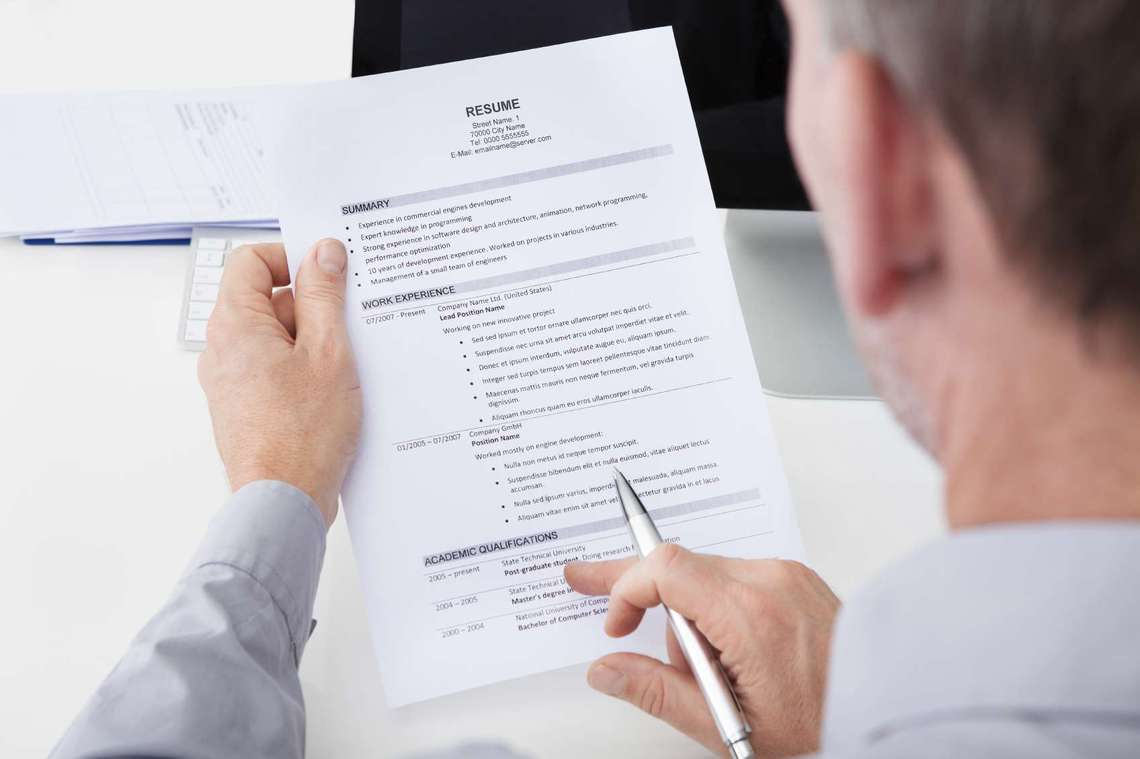Although the issue of CVs is one of the most discussed topics when applying for a job, there are still those who spoil the opportunity to get a job due to mistakes in their CV. Very often it is a lax approach to writing it, but also an excessive effort to attract. Take a look at the most common mistakes in your resume and how to avoid them.

Incorrectly named file or format
Of course, if you send a paper CV, this error will not happen to you. Today, however, it is common practice to send resumes electronically. In that case, name the file so that it is clear that it is a CV, and always include your last name in the file name. The employer will be able to easily find your CV again and return to it.
Related to this is the file format, which should always be chosen so that its form does not change and so that the employer can open it without any problems. It is best to always convert your CV to a PDF format that meets these criteria.
The deterrent look of a resume
The first impression that a resume makes on an employer is the most important. You should definitely take care of its adjustment. Leave a lot of free space around the font, pay attention to the correct alignment and indentation of the paragraphs as well as the appearance of any attachments. Definitely forget about fancy unreadable fonts. Always use one of the basic fonts and do not change it as you type. Save even with excessive tearing, thickening and another highlighting, use everything only in a degree of clarity. The absence of grammatical errors should be a matter of course.
Incorrectly selected photo
Opinions differ on whether to attach photos to the CV. If you are adding it, be careful which photo you will represent. Of course, the photos in the CV are the first to attract attention, so you should definitely avoid very personal photos from celebrations, photos with friends or family or even with pets. In the photo, you should be well dressed and have a neutral rather smiling expression. Never send a photo of the whole character unless required directly by the employer (eg modeling work) .
Exaggerated scope of CV with unnecessary data
Think about what a particular employer really cares about. Do not mention unnecessary things that are not related to the place you are applying for. Nobody wants to discuss unnecessary data, and they often extend their CV by discouraging it from reading it completely. Your resume should never exceed two pages. For each position, it is advisable to slightly adjust the resume to match what is expected of you.
Insufficient amount of (true) information
On the other hand, some people tend to include only what is really necessary for their CV, and the information they provide is not enough to fully assess their qualities. Take the job and evaluate the relevance of the information provided, and refine the selected information. It is certainly not harmful to state, for example, the level of foreign languages or the exact level of knowledge or skills that relate to the position.

There is also a recurring rule – never underestimate your resume, but you can’t either. Most job seekers try to get interested and therefore improve or distort the data in the CV. However, an overly ambitious CV will not make you a better candidate, on the contrary. Employers are used to lying in CVs, and even if they do not reveal a possible lie immediately, your shortcomings will immediately come to the fore during an interview or when starting work.
You read the requirements in the advertisement carefully
Unfortunately, even this obviousness often remains unfulfilled, thanks to which a number of CVs are discarded before the actual inspection. Therefore, read the job offer or part-time job several times and do not forget anything that the employer requires in the advertisement. Especially if he wants to include a reference number or position name in the subject of the email, you should not overlook such information. Also, always make sure that you really send all the information you are asked for, as well as any required attachments.
